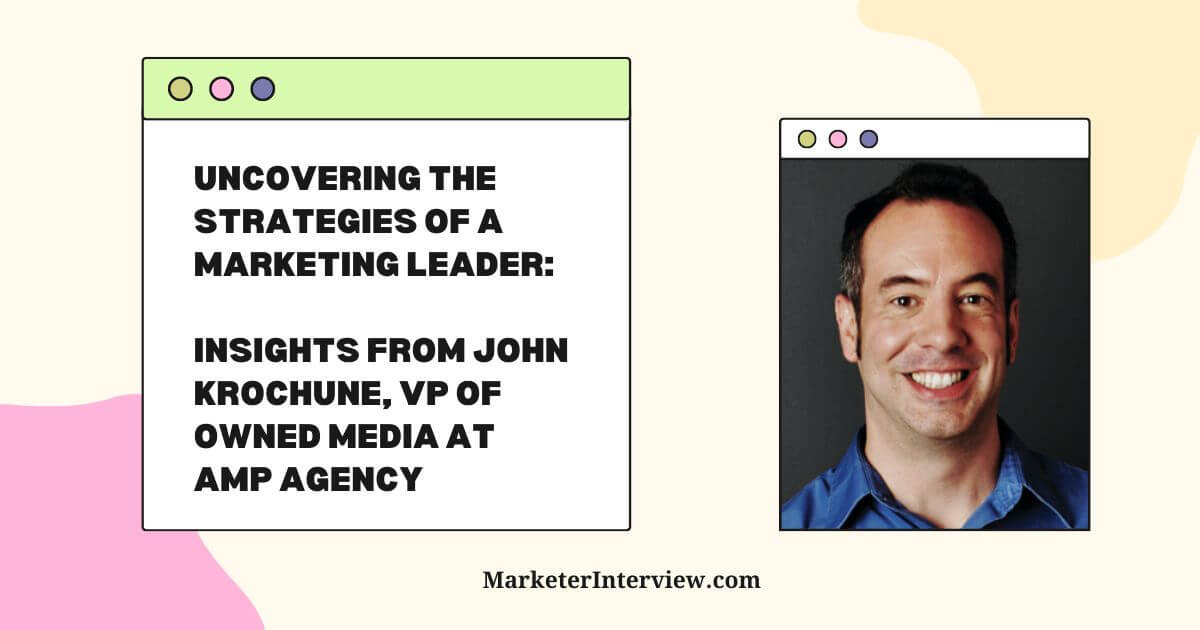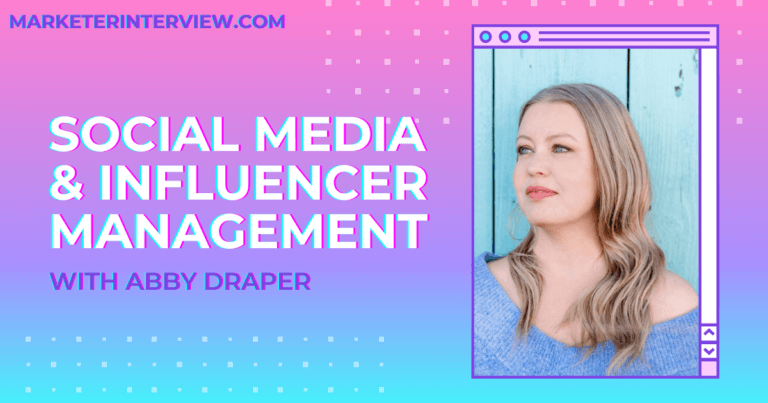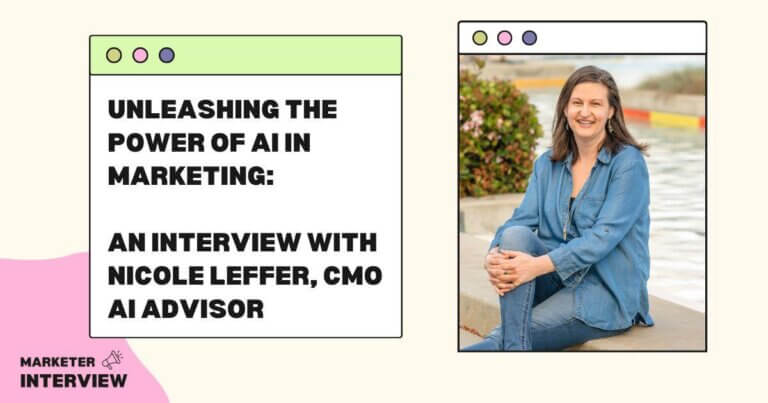Uncovering the Strategies of a Marketing Leader: Insights from John Krochune, VP of Owned Media at AMP Agency
Welcome to MarketerInterview.com, where we connect with top industry leaders to gain insights into the marketing world.
Today, we have the pleasure of speaking with John Krochune, the VP of Owned Media at AMP Agency, a full-service marketing agency with offices across the United States.
With over 20 years of experience in digital marketing, John has gained a wealth of knowledge in SEO and PPC, managing teams, and exceeding goals for companies ranging from startups to Fortune 500s.
In this interview, we’ll dive into John’s expertise in leadership and management, PR, and social media to learn more about his strategies for success in the ever-changing world of marketing.
Contents
- 1 Can you tell us about your journey into the marketing industry? How did you develop your expertise in search engine marketing?
- 2 As a leader in your industry, what advice would you give to individuals interested in pursuing a career in marketing?
- 3 How do you motivate your team to achieve their goals and develop into effective leaders?
- 4 Can you discuss your experience managing vendor relationships and ensuring that projects are delivered on time and within budget?
- 5 With the rise of social media, how can brands effectively use these platforms to engage with their audience and build a solid online presence?
- 6 What common mistakes do companies make in their PR, and how can they avoid them?
- 7 Can you discuss your experience with crisis management? How do you approach handling difficult situations that arise in the public eye?
- 8 With the constantly changing landscape of digital marketing, how do you stay up-to-date with the latest trends and technologies?
- 9 Can you discuss a successful project you led in your current role and the strategies you implemented to achieve success?
- 10 How do you balance your client’s needs with your company’s goals? What steps do you take to ensure that both are being achieved simultaneously?
Can you tell us about your journey into the marketing industry? How did you develop your expertise in search engine marketing?
I started in Search Marketing at the original search engine marketing firm iProspect in 2002.
Back then, there were over 10 search engines and directories we were tracking for our clients. It was an exciting time as big companies began to understand the impact this type of marketing could have on their top and bottom line.
My expertise came from on-the-job training and experience working with brands across many industries. At different points in my career, I worked in-house with development and product teams to bring success to our company’s website.
As a leader in your industry, what advice would you give to individuals interested in pursuing a career in marketing?
They should research the industry and learn more about marketing fundamentals. There are many training resources available for someone who is looking to start a career in marketing.
After reviewing the resources, there are certifications you can obtain that can help you to gain a working knowledge of marketing platforms like Google Ads. These certifications may assist in getting an interview for a marketing role.
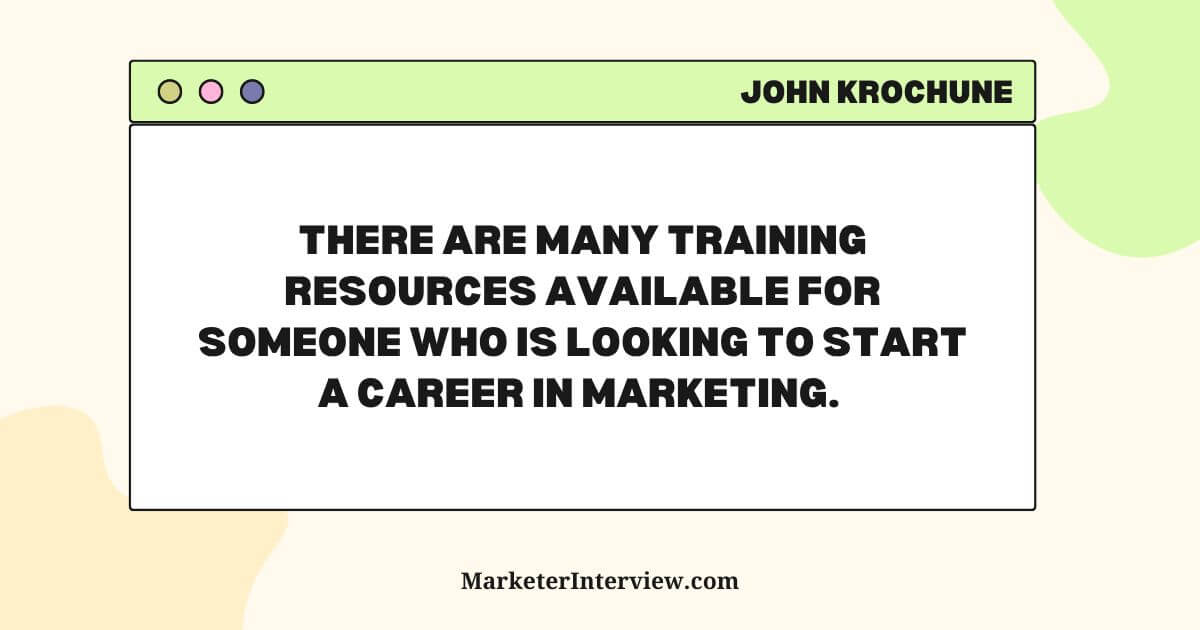
How do you motivate your team to achieve their goals and develop into effective leaders?
I manage in a collaborative fashion where I ask questions to allow the team to come up with solutions by themselves rather than just following my suggestions.
In organic search marketing, critical thinking is essential. For example, you have to consider why Google interprets a page the way it is or why traffic is increasing or decreasing.
Giving the team a chance to work on challenges without being prescriptive is a great way to develop their leadership skills.
Can you discuss your experience managing vendor relationships and ensuring that projects are delivered on time and within budget?
You have to be clear in your expectations with a vendor on delivery. With any project, keeping deadlines is imperative. You have to express yourself upfront when things need to be done.
Also, tell the vendor to immediately communicate with you about delays or overages. Once everyone is on the same page, engagements go smoothly.
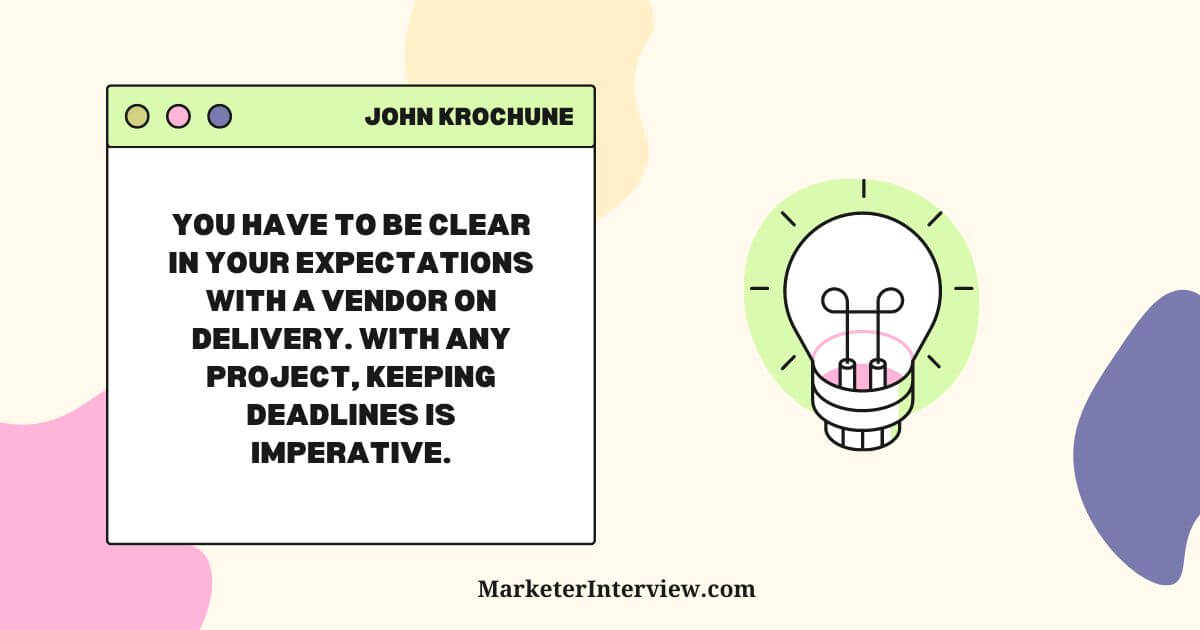
Every platform has nuances, but the overarching goal is to express their brand message through their account.
Depending on the brand, the approach can be playful or informative. Ultimately, you want to provide value in these platforms that endear users to the brand.
What common mistakes do companies make in their PR, and how can they avoid them?
An opportunity for PR work is to coordinate with website content teams. For example, after the initial splash, you want to have some presence of the announcement on the site.
It is good practice to build content aligned with the PR effort. That way, the topic announced in the PR push can live on and be found on the website.
Usually, PR programs are part of a larger-scale campaign, but if it’s not, connecting with the website team is an easy way to compound their efforts.
Can you discuss your experience with crisis management? How do you approach handling difficult situations that arise in the public eye?
You need to have a plan to handle crises before they occur so you’re prepared before something happens.
Being open and honest with stakeholders and the public is essential in a crisis, so transparency is critical. Make sure you use language that is easy to understand and be empathetic to the concerns and needs of those affected by the crisis.
Lastly, it is crucial to respond quickly, so having a plan before a crisis can save the brand from increased scrutiny and criticism.
With the constantly changing landscape of digital marketing, how do you stay up-to-date with the latest trends and technologies?
I attend webinars weekly on subjects that are core to my marketing practice, whether SEO, content marketing, web analytics, and CRM. In addition, I read articles from publications like AdAge, Search Engine Land, and HubSpot.
I follow many industry leaders on LinkedIn and Twitter who share their latest thoughts and work and find inspiration from them. Social media also has marketing groups that are great to learn from. I just joined a Slack channel for Growth Marketing and enjoyed the platform’s immediacy.
Lastly, attending conferences and taking the time to take a course to be certified in a marketing practice can keep you in an “always learning” mindset.
Can you discuss a successful project you led in your current role and the strategies you implemented to achieve success?
Recent success on a project I led was for a B2B client. They asked to improve their organic search performance, where the KPIs were to increase organic search traffic and revenue driven from that traffic.
Our main strategy revolved around better storytelling and the position of their offering. They partner with well-known brands, so we used the notoriety of those names and connected them to the services our client provides.
This strategy led to a 36% increase in traffic and a 98% increase in revenue from the organic search channel.
How do you balance your client’s needs with your company’s goals? What steps do you take to ensure that both are being achieved simultaneously?
In my experience, listening to your clients’ needs and seeking solutions for their challenges always leads to more business for our agency.
I have the privilege to work for a full-service marketing agency, so that’s something that not everyone has, the ability to grow business across different marketing channels and disciplines. If you are a good partner, opportunities will arise.
Our agency goals are focused on growing our revenue, and if we can align them with our client’s goals, then it is easy to arrange mutually beneficial engagements.
